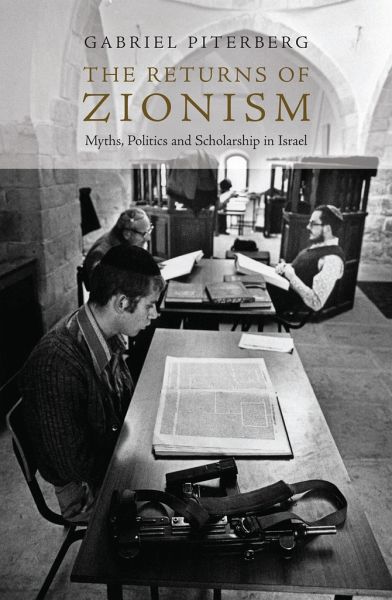Nicht lieferbar

The Returns of Zionism
Myths, Politics and Scholarship in Israel
Versandkostenfrei!
Nicht lieferbar
Examines the ideology and literature behind the colonization of Palestine, from the late nineteenth century onwards. Exploring Zionism's origins in Central-Eastern European nationalism and settler movements, this title shows how its texts can be placed within a discourse of western colonization.













